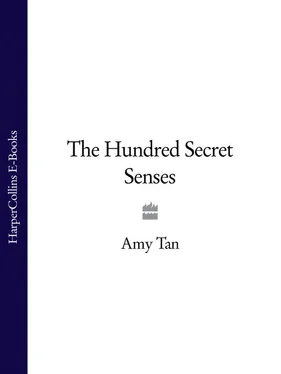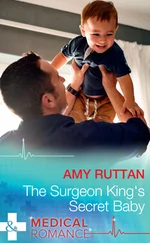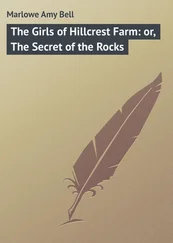When the customs official finally escorted Kwan into the lobby where we were waiting, Aunt Betty pointed and said, ‘That’s her. I’m telling you that’s her.’ Mom was shaking her head. This person looked like a strange old lady, short and chubby, not exactly the starving waif Mom pictured or the glamorous teenage sister I had in mind. She was dressed in drab gray pajamas, and her broad brown face was flanked by two thick braids.
Kwan was anything but shy. She dropped her bag, fluttered her arms, and bellowed, ‘Hall-oo! Hall-oo!’ Still hooting and laughing, she jumped and squealed the way our new dog did whenever we let him out of the garage. This total stranger tumbled into Mom’s arms, then Daddy Bob’s. She grabbed Kevin and Tommy by the shoulders and shook them. When she saw me, she grew quiet, squatted on the lobby floor, and held out her arms. I tugged on my mother’s skirt. ‘Is that my big sister?’
Mom said, ‘See, she has your father’s same thick, black hair.’
I still have the picture Aunt Betty took: curly-haired Mom in a mohair suit, flashing a quirky smile; our Italo-American stepfather, Bob, appearing stunned; Kevin and Tommy mugging in cowboy hats; a grinning Kwan with her hand on my shoulder; and me in a frothy party dress, my finger stuck in my bawling mouth.
I was crying because just moments before the photo was taken, Kwan had given me a present. It was a small cage of woven straw, which she pulled out of the wide sleeve of her coat and handed to me proudly. When I held it up to my eyes and peered between the webbing, I saw a six-legged monster, fresh-grass green, with saw-blade jaws, bulging eyes, and whips for eyebrows. I screamed and flung the cage away.
At home, in the bedroom we shared from then on, Kwan hung the cage with the grasshopper, now missing one leg. As soon as night fell, the grasshopper began to chirp as loudly as a bicycle bell warning people to get out of the road.
After that day, my life was never the same. To Mom, Kwan was a handy baby-sitter, willing, able, and free. Before my mother took off for an afternoon at the beauty parlor or a shopping trip with her gal pals, she’d tell me to stick to Kwan. ‘Be a good little sister and explain to her anything she doesn’t understand. Promise?’ So every day after school, Kwan would latch on to me and tag along wherever I went. By the first grade, I became an expert on public humiliation and shame. Kwan asked so many dumb questions that all the neighborhood kids thought she had come from Mars. She’d say: ‘What M&M?’ ‘What ching gum?’ ‘Who this Popeys Sailor Man? Why one eye gone? He bandit?’ Even Kevin and Tommy laughed.
With Kwan around, my mother could float guiltlessly through her honeymoon phase with Bob. When my teacher called Mom to say I was running a fever, it was Kwan who showed up at the nurse’s office to take me home. When I fell while roller-skating, Kwan bandaged my elbows. She braided my hair. She packed lunches for Kevin, Tommy, and me. She tried to teach me to sing Chinese nursery songs. She soothed me when I lost a tooth. She ran the washcloth over my neck while I took my bath.
I should have been grateful to Kwan. I could always depend on her. She liked nothing better than to be by my side. But instead, most of the time, I resented her for taking my mother’s place.
I remember the day it first occurred to me to get rid of Kwan. It was summer, a few months after she had arrived. Kwan, Kevin, Tommy, and I were sitting on our front lawn, waiting for something to happen. A couple of Kevin’s friends sneaked to the side of our house and turned on the sprinkler system. My brothers and I heard the telltale spit and gurgle of water running into the lines, and we ran off just before a dozen sprinkler heads burst into spray. Kwan, however, simply stood there, getting soaked, marveling that so many springs had erupted out of the earth all at once. Kevin and his friends were howling with laughter. I shouted, ‘That’s not nice.’
Then one of Kevin’s friends, a swaggering second-grader whom all the little girls had a crush on, said to me, ‘Is that dumb Chink your sister? Hey, Olivia, does that mean you’re a dumb Chink too?’
I was so flustered I yelled, ‘She’s not my sister! I hate her! I wish she’d go back to China!’ Tommy later told Daddy Bob what I had said, and Daddy Bob said, ‘Louise, you better do something about your daughter.’ My mother shook her head, looking sad. ‘Olivia,’ she said, ‘we don’t ever hate anyone. “Hate” is a terrible word. It hurts you as much as it hurts others.’ Of course, this only made me hate Kwan even more.
The worst part was sharing my bedroom with her. At night, she liked to throw open the curtains so that the glare of the street lamp poured into our room, where we lay side by side in our matching twin beds. Under this ‘beautiful American moon,’ as she called it, Kwan would jabber away in Chinese. She kept on talking while I pretended to be asleep. She’d still be yakking when I woke up. That’s how I became the only one in our family who learned Chinese. Kwan infected me with it. I absorbed her language through my pores while I was sleeping. She pushed her Chinese secrets into my brain and changed how I thought about the world. Soon I was even having nightmares in Chinese.
In exchange, Kwan learned her English from me – which, now that I think of it, may be the reason she has never spoken it all that well. I was not an enthusiastic teacher. One time, when I was seven, I played a mean trick on her. We were lying in our beds in the dark.
‘Libby-ah,’ Kwan said. And then she asked in Chinese, ‘The delicious pear we ate this evening, what’s its American name?’
‘Barf,’ I said, then covered my mouth to keep her from hearing my snickers.
She stumbled over this new sound – ‘bar-a-fa, bar-a-fa’ – before she said, ‘Wah! What a clumsy word for such a delicate taste. I never ate such good fruit. Libby-ah, you are a lucky girl. If only my mother did not die.’ She could segue from just about any topic to the tragedies of her former life, all of which she conveyed to me in our secret language of Chinese.
Another time, she watched me sort through Valentine’s Day cards I had spilled onto my bed. She came over and picked up a card. ‘What’s this shape?’
‘It’s a heart. It means love. See, all the cards have them. I have to give one to each kid in my class. But it doesn’t really mean I love everyone.’
She went back to her own bed and lay down. ‘Libby-ah,’ she said, ‘If only my mother didn’t die of heartsickness.’ I sighed, but didn’t look at her. This again. She was quiet for a few moments, then went on. ‘Do you know what heartsickness is?’
‘What?’
‘It’s warming your body next to your family, then having the straw roof blow off and carry you away.’
‘Oh.’
‘You see, she didn’t die of lung sickness, no such thing.’
And then Kwan told me how our father caught a disease of too many good dreams. He could not stop thinking about riches and an easier life, so he became lost, floated out of their lives, and washed away his memories of the wife and baby he left behind.
‘I’m not saying our father was a bad man,’ Kwan whispered hoarsely. ‘Not so. But his loyalty was not strong. Libby-ah, do you know what loyalty is?’
‘What?’
‘It’s like this. If you ask someone to cut off his hand to save you from flying off with the roof, he immediately cuts off both hands to show he is more than glad to do so.’
‘Oh.’
‘But our father didn’t do this. He left us when my mother was about to have another baby. I’m not telling you lies, Libby-ah, this is true. When this happened, I was four years old by my Chinese age. I can never forget lying against my mother, rubbing her swollen belly. Like a watermelon, she was this big.’
Читать дальше












